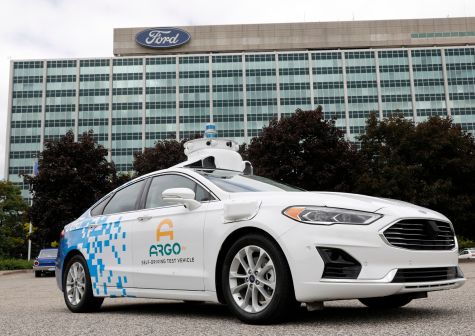Autonomous vehicle map showcases 53 city initiatives around the world

In a bid to promote development of autonomous vehicles (AVs), Bloomberg Philanthropies published a new site Monday that profiles how cites are testing and researching the technology.
Called the Global Atlas of Autonomous Vehicles in Cities, the site presents visitors a map of cities that are either preparing for AVs through policy and research, or that are coordinating pilot projects. A searchable listing of the 53 municipalities accompanies the map, providing summaries of the initiatives and links to documentation. James Anderson, the head of Bloomberg Philanthropies’ Government Innovation program, said the aspiration is that the Atlas evolves into an information exchange, one mayors and officials can use to find updates on use cases and details on new cities testing AVs.
“Cities are stronger when they learn and act together, and this map provides cities with information critical to their own success through this transition,” Anderson said in a statement. “This map will serve as an important knowledge-sharing tool, providing cities with what’s needed to not only have a seat at the table during this transformation but be leaders of it.”
Key takeaways from the Atlas are that no city, whether in the U.S. or abroad, has green-lighted AVs for public use, and all cities are seeking more insights before AVs are officially allowed. Yet cautiousness has not impeded interested cities from experimentation. The Atlas shows 35 cities, or 66 percent, are beginning pilots, while the remaining are actively investigating the policy, regulatory and legal factors linked with AV use.
The top three reasons cities are pursuing AVs, the Atlas noted, are for public transit, with 22 cities listing this reason; for private vehicles, at 16 cities; and for taxi services, at six cities. The last two reasons, freight and paratransit, saw interest from five cities.
Bloomberg acknowledges that its Atlas may not cover every pilot, policy or endeavor underway across the globe — the site prompts its visitors to fill out a form for missing cities or to clarify or update its current case studies.
The Atlas, however, does call on cities to take an active role in the management and regulatory process of AVs. At the federal level, lobbyists from the auto industry have expressed fears that multiple standards from cities and states could raise AV production costs as companies try to match car specs to local laws. Further, the Atlas doesn’t account for cities that are open to AVs but choose to defer testing and regulation to state legislators and agencies.
On this point, smaller cities may find it more financially feasible to let state authorities take on the costs of testing as well as some of the liability burdens. In a survey of 38 cities, conducted by Bloomberg and the Aspen Institute, the No. 1 reason cities reported they did not have AV initiatives was lack of funding. The No. 2 reason was a lack of capacity for staff to manage the pilots.
“These cities told us they are struggling to find the human and financial capacity to deliver more projects — and the right actions are not yet clear or urgent enough,” Bloomberg noted in its survey.
Still, with city populations rising and limited land for new roadways, AVs seem to be an inevitability. At the state level they are endorsed by a host of governors who are hoping their state becomes one of the first to commercially deploy the technology, and at the federal level, legislators have introduced bills designed to remove barriers for the auto industry to test the vehicles.
As progress continues, Bloomberg and the Aspen Institute are continuing a larger initiative, which Atlas is a part of, to advance AV’s in cities through collaboration, resources and new tools. Walter Isaacson, president and CEO of the Aspen Institute, said at the initiative’s launch in 2016 that such dialogue and research will be crucial to prepare cities.
“[This initiative] is a wonderful opportunity for mayors, technologists, policy experts, and thought leaders to apply technology to make cities safer, healthier, and better connected. The real innovation potential here is not just for new kinds of cars, but new kinds of communities,” Isaacson said in a statement.






